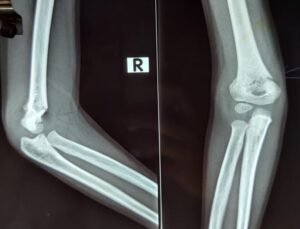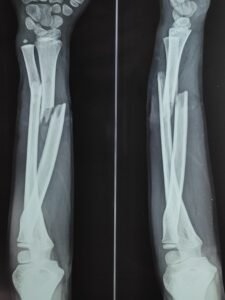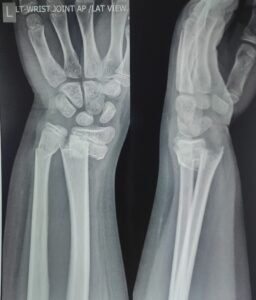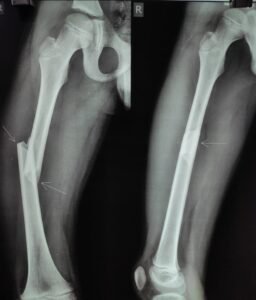Pediatric fractures are distressing for the parents and children, and they need urgent treatment with care. Due to the unique nature of developing bones, prompt treatment is warranted; otherwise unsightly deformities may result if left untreated. Let us have a look at common pediatric fractures and their possible treatment options.

1. Elbow fracture- lower humerus
This is the most common fracture seen in children. This fracture is notorious for leading to a “gunstock deformity” if left untreated. Click below to see the common treatment options.

2. Forearm fracture- Radius and Ulna
A fall on outstretched hand may lead to this fracture. Based on how displaced the fracture is, this may be treated by different methods. An unsightly forearm deformity may result if it is left untreated.

3. Wrist fracture- Lower Radius
This fracture usually occurs due to fall upon affected wrist. This also needs to be treated adequately to prevent deformity of wrist. Click below to see the common treatment options.

4. Femur fracture
This bone is often fractured by high velocity impact (eg. Road traffic accident). If left untreated this may lead to shortening of the affected limb and and abnormal walking gait. Thus, this fracture requires early intervention and treatment for optimal outcome.
View common treatment options –>

5. Leg fracture- Tibia and Fibula
This fracture is also the result of high velocity injury. This can also possibly lead to shortening of the limb if left untreated. Its treatment varies based on the type of fracture. Click below to see the common treatment options.